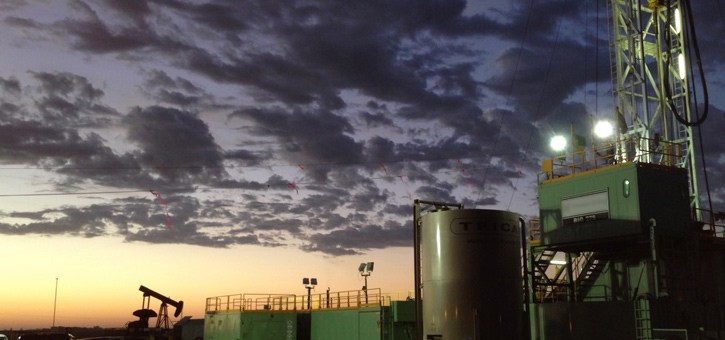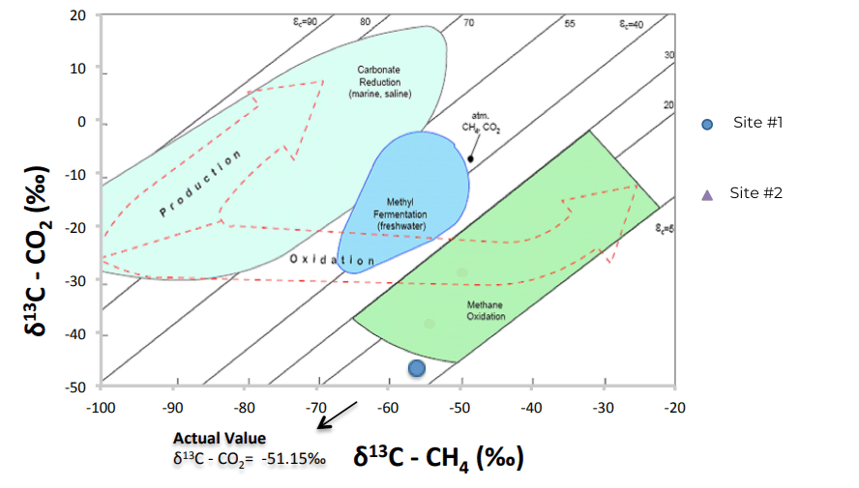Social media chatter regarding a recent Environmental Science & Technology site publication caught my attention. The article covers fracking (a very, very bad word in today’s society), and how polycyclic aromatic hydrocarbons (PAHs) were high near gas production areas studied by this article. Since I am passionate about, and do a lot of consulting on, both topics, I was obviously intrigued and quickly downloaded the article. I was soon wondering why “fracking” and “PAHs” were associated. The fingerprinting method for the study only used two ratios of four different PAHs (standard for chemical
fingerprinting of PAHs) to show the PAHs were from a petrogenic source. Okay, that makes sense - we are near gas production wells and we are seeing petrogenic PAHs. The PAHs appear to come from the production process, but how is this related to the fracking? So I downloaded the supplementary information for the article, expecting a nugget of information linking fracking and PAHs. I was again disappointed. Even though the study measured 62 PAHs in the samples, the focus wasn't on alkylated PAHs. If the study considered alkylated PAHs, more could have been deduced about the source (likely still indicating a petrogenic source)
I re-read the article, and zeroed in on the first line of the abstract: 'Natural gas extraction, often referred to as “fracking," has increased rapidly in the U.S. in recent years.’ I scanned over this headline the first time, anxious to get into the meat of the paper. However, the headline is misleading – and incorrect.
Natural gas extraction is NOT the same as ‘fracking’..
These terms are not interchangeable. Fracking is a process that helps with gas extraction and is used to facilitate the gas flow from the well by causing “fractures” in the subsurface - hence, the term “fracking.” This process allows more gas to come into the well, and is a discrete event that occurs in the well. Fracturing the surface happens initially when the well is drilled and takes only days to complete. Natural gas extraction, on the other hand, happens the entire time the well is in production, starting after the well is operational and ending when the well is shut in. A natural gas extraction well can produce for several years.
The headline of the article easily misleads readers to incorrectly associate the buzz word 'fracking' with PAHs. This paper does not prove that fracking causes PAHs. However, the production of natural gas and oil will cause increases in PAHs in surrounding areas. Therefore, it’s the production process, the on-site activities, and potential fugitive emissions causing the increase in PAHs (petrogenic in origin) in and around production wells. Fracking may, however, lead to a short-term surge of PAHs due to other factors, such as the diesel emissions from the equipment used during drilling of the frack,or from incineration processes during the frack. But as the data is presented in this article, doesn't conclusively prove the fracking process caused the increase in PAHs for this study. The processes described above are all pyrogenic sources of PAHs, and not the petrogenic sources shown with the ratios in the article. What the study does illustrate is that PAHs are higher near gas production facilities. These PAHs are petrogenic in origin, thus coming from the production process. I suspect the scientists from this study acquired samples not just near new well locations (i.e. no other wells nearby), but rather from pads with multiple producing wells already. Other nearby wells could be contributing to the PAHs in the area, but this was not clearly laid out in the publication. Therefore, the exact sources (from onsite activities) for PAHs found near these facilities still remains to be determined.
The main lesson here is be wary of sensational headlines, especially in social media; the writer’s job is to get your attention and turn you into a reader in less than 8 seconds. You can easily be lead to believe in something that’s not true if you’re a passive scanner. Alternatively, writers and purveyors of studies should validate proper use of terminology in unfamiliar industries prior to publishing their work. After all, validation and confirmation is something every good scientist – and journalist – must do.
Read the original referenced article and study here:
http://pubs.acs.org/doi/abs/10.1021/es506095e
Related Resources:
| Fracking up Drinking Water presented at Watertech 2012 from Chemistry Matters Inc. |



